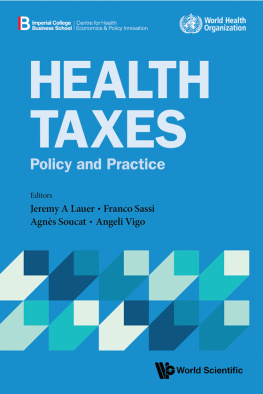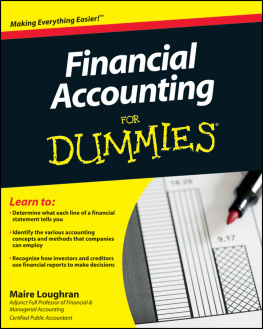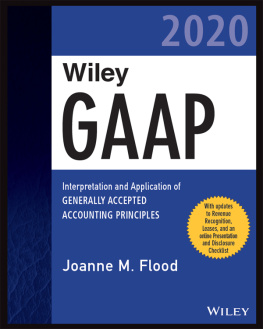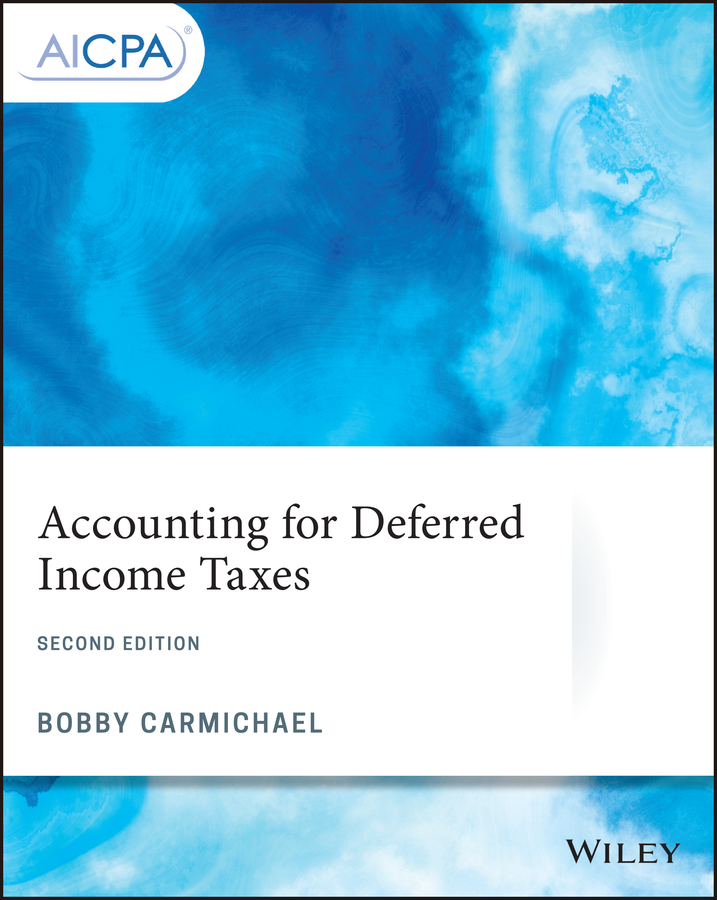Table of Contents
Guide
Pages

ACCOUNTING FOR DEFERRED INCOME TAXES
BY BOBBY CARMICHAEL, CPA
Notice to readers
Accounting for Deferred Income Taxes is intended solely for use in continuing professional education and not as a reference. It does not represent an official position of the American Institute of Certified Public Accountants, and it is distributed with the understanding that the author and publisher are not rendering legal, accounting, or other professional services in the publication. This course is intended to be an overview of the topics discussed within, and the author has made every attempt to verify the completeness and accuracy of the information herein. However, neither the author nor publisher can guarantee the applicability of the information found herein. If legal advice or other expert assistance is required, the services of a competent professional should be sought.
You can qualify to earn free CPE through our pilot testing program.
If interested, please visit https://aicpacompliance.polldaddy.com/s/pilot-testing-survey.
2019 Association of International Certified Professional Accountants. This work contains material licensed from Bobby J. Carmichael.
For information about the procedure for requesting permission to make copies of any part of this work, please email with your request. Otherwise, requests should be written and mailed to Permissions Department, 220 Leigh Farm Road, Durham, NC 27707-8110 USA.
ISBN 978-1-119-72456-8 (Paper)
ISBN 978-1-119-72460-5 (ePDF)
ISBN 978-1-119-72461-2 (ePub)
ISBN 978-1-119-72463-6 (oBook)
Course Code: 732855
AIT GS-0419-0A
Revised: January 2019
Chapter 1
Theoretical Concepts of FASB ASC 740

Learning objectives
- Recognize the theory of deferred taxes and how this theory can then be applied to practical situations.
- Identify the scope, objectives, or basic principles of FASB Accounting Standards Codification (ASC) 740, Income Taxes.
- Identify recognition and measurement of deferred taxes under FASB ASC 740.
Overview
In todays reporting environment, it is important for the professional accountant to accurately and efficiently report the results of a companys operation. A practical application worksheet approach is used that will aid in this process. There is no other area in accounting that is as far reaching and requires knowledge of as vast a number of topics in financial and tax accounting as accounting for deferred taxes. This course addresses the application of this complex standard to many common differences between financial accounting and tax compliance.
The Sarbanes-Oxley Act requires senior executives to attest to the extent and effectiveness of internal controls for financial reporting. The controls surrounding the tax function are a critical component of this compliance. Controls should be in place to provide timely and accurate information for all required data that is the basis for properly measuring a firms deferred tax asset (DTA) or deferred tax liability (DTL) and properly reporting this information in the financial statements.
A lack of controls surrounding the tax function and specifically the tax provision determination process has resulted in this area being one of the top control deficiencies reported by auditors of public companies. In response to this situation, tax shelter abuses and other aggressive tax positions, FASB issued FASB Interpretation (FIN) No. 48, Accounting for Uncertainty in Income Taxes, requiring specific recognition, measurement, and disclosure with regard to uncertain tax positions. Those requirements substantially changed the tax provision calculation and documentation process and the audit work performed by external auditors, including members of the firms tax teams. FIN No. 48 has been codified in FASB ASC 740; tax team members need a thorough understanding of the standard.
Knowledge check
- Which statement is correct?
- Controls surrounding the tax function are not as important as other functions in complying with the Sarbanes-Oxley Act.
- Controls surrounding the tax function are a critical component of compliance with the Sarbanes-Oxley Act.
- The Sarbanes-Oxley Act does not apply to the controls surrounding the tax function.
- FIN 48 has not yet been codified in FASB ASC.
FASB ASC 740
FASB ASC 740 addresses financial accounting and reporting for the effects of income taxes that result from a companys activities during the current and preceding year. It is a balance sheet approach to computation of DTAs where the desired ending balances of the deferred tax accounts are determined and then appropriate adjustments are made to the accounts.
Scope of FASB ASC 740
FASB ASC 740 established standards of financial accounting and reporting for income taxes that are currently payable and for the tax consequences of
- reporting of gains, revenues, losses, and expenses in taxable income in an earlier or later accounting period than recognized in financial income;
- events other than differences in income that create differences in tax accounting and financial accounting bases of assets and liabilities; and
- operating loss or tax credit carrybacks for refunds of taxes paid in prior years and carryforwards to reduce taxes payable in future years.
The principles and requirements of FASB ASC 740 are applicable to
- domestic federal (national) income taxes and foreign, state, and local (including franchise) taxes based on income;
- For example, Texas has a margin tax that is based on the lower of (a) total revenue less cost of goods sold, (b) total revenue less employee compensation and benefits (not including payroll taxes), (c) total revenue minus $1 million, or (d) 70 percent of revenue. Although this may not be an income tax under state law, it is an income tax for purposes of FASB ASC 740.
- a companys domestic and foreign operations that are consolidated, combined, or accounted for by the equity method; and
- foreign enterprises in preparing financial statements in accordance with U.S. generally accepted accounting principles (GAAP).
FASB ASC 740 does NOT address
- basic methods of accounting for any investment tax credits;
- discounting; and
- accounting for income taxes in interim periods, except for
- criteria for recognition of tax benefits,
- effect of changes in tax laws or rates, and
- changes in valuation allowances.
The purpose of FASB ASC 740 was to change the criteria for recognition and measurement of DTAs and reduce complexity.
Objectives and basic principles
The objectives of FASB ASC 740 are to
- recognize the amount of taxes payable or refundable for the current year and
- recognize DTLs and DTAs for the future tax consequences of events that have been recognized in the financial statements or tax returns.











